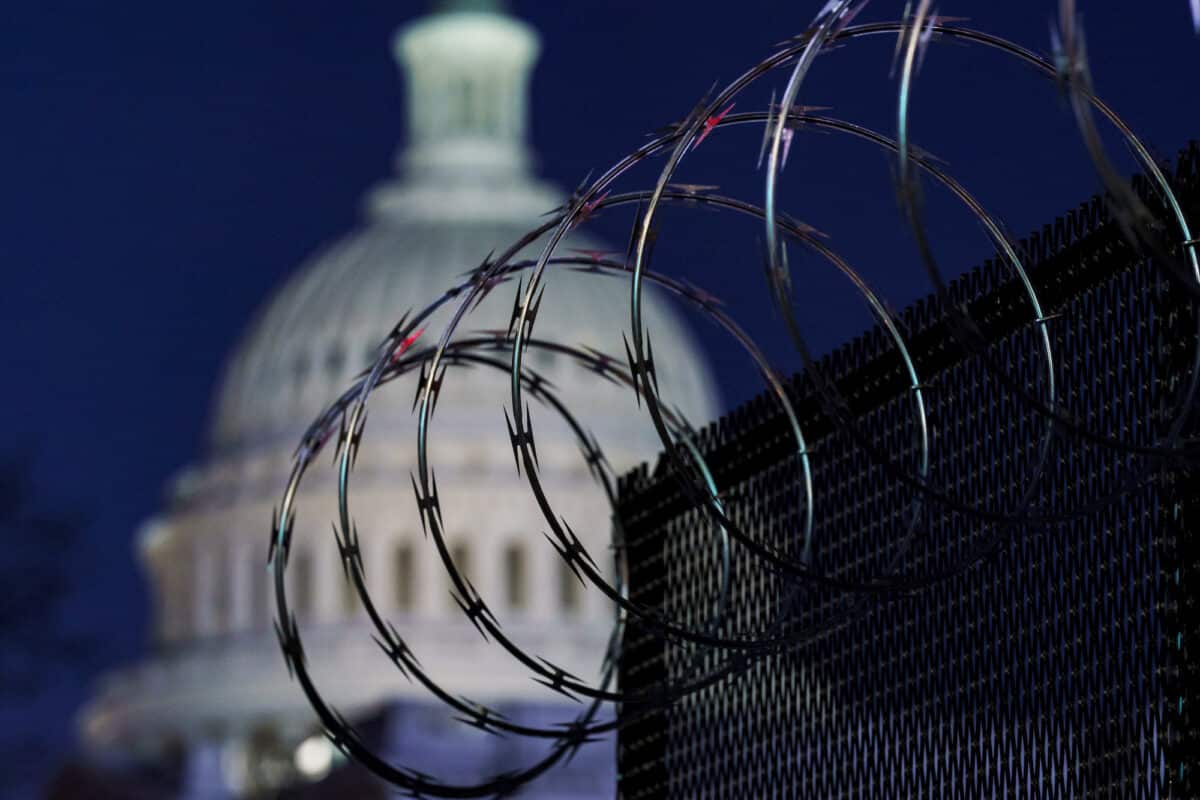Democrats in the House Oversight Committee have voted along party lines to pass a bill seeking to make the District of Columbia the 51st state, sending their bill to a full House vote.
The panel voted 25-19 to advance H.R. 51, also known as the “Washington, D.C. Admission Act,” to grant statehood to residents in the district after a lengthy debate over the constitutionality of the effort. The Democrat-led House passed a similar bill in 2020 but the Democrat effort was effectively shot down by the then-Republican-led Senate.
If successful, the bill would see D.C. residents be able to elect two more Senators to represent the Democrat-leaning state. The federal district, to be controlled by Congress, would be limited to two square miles surrounding the White House, Capitol, Supreme Court, and National Mall to be named the “Capital.”
The issue has garnered intense debate, with Democrats arguing that tax-paying D.C. residents should be afforded the same congressional representation as those in other states.
The Constitution grants Congress the exclusive jurisdiction over the district “in all cases whatsoever.” But in 1973, Congress passed the District of Columbia Home Rule Act that established the Council of the District of Columbia as an effort to afford a form of autonomy to the district and allowed for an elected mayor. Congress retained its authority to review all laws passed by the district and to block and restrict the types of laws enacted.
Meanwhile, the district is also only represented by a delegate in the House of Representatives, who has limited voting privileges, and no senators. The current D.C. delegate is Congresswoman Eleanor Norton (D), who introduced the bill.
“Congress can no longer exclude D.C. residents from the democratic process, forcing residents to watch from the sidelines as Congress votes on laws that affect the nation or votes even on the laws of the duly elected D.C. government,” Norton said on Wednesday. The bill is also backed by D.C. Mayor Muriel Bowser.
“D.C. residents demand much more. D.C. residents deserve full voting representation in the Senate and the House and complete control over their local affairs. They deserve statehood,” Norton said.
The Democrats’ efforts have been opposed by Republicans, who argue that the efforts are unconstitutional and characterized the push as a “power grab” that would tip the scales in the Senate in the Democrats’ favor.
“From a South Carolina point of view. This is not a good deal for us. Being two of 50 is better than being two out of 52. This would dilute South Carolina’s say in the United States Senate and it would empower the most radical agenda in modern American politics,” Sen. Lindsey Graham (R-S.C.) told reporters at a press conference in January. “This is not about enfranchising people, this is about expanding the Senate map to accommodate the most radical agenda that I’ve ever seen since I’ve been up here, getting more radical by the day.”
Similarly, 22 Republican attorneys general vowed to challenge any attempt to make D.C. the 51st state.
“If this Congress passes and President Biden signs this Act into law, we will use every legal tool at our disposal to defend the United States Constitution and the rights of our states from this unlawful effort to provide statehood to the District of Columbia,” the attorneys general wrote in an April 13 letter (pdf) to President Joe Biden and congressional leaders.
They argue that Congress lacks the authority to create a new state out of the district and alter its size.
“Accordingly, not only does Congress lack the authority to create an entirely new state out of the District, but it also does not have the authority to reduce the size of the District to the equivalent of a few federal buildings and surrounding parks,” they wrote in the letter.
Their letter moved on to warn that D.C. statehood would undermine the design of the Founding Fathers, who decided not to place the capital of the United States within any state, so that no state would be able to exercise excessive influence over the federal government. They also claimed that admitting D.C. as a state would unfairly benefit the city’s residents.
Lee A. Casey, a partner in the Washington office of Baker Hostetler, argued in a 2007 piece for the conservative think tank the Heritage Foundation that the Founding Fathers did not provide the district’s residents the right to elect federal representations because they believed that the residents received “the multifarious benefits of the national capital.”
Casey cited Supreme Court Associate Justice Joseph Story, who believed the residents at the time would be represented in the capital.
“There can be little doubt that the inhabitants composing [the District] would receive with thankfulness such a blessing, since their own importance would be thereby increased, their interests be subserved, and their rights be under the immediate protection of the representatives of the whole Union,” Story wrote in the Commentaries on the Constitution of the United States.
Republicans attempted to address the issue of Senate representation by presenting an amendment to allow DC residents to vote in Maryland congressional and Senate elections but Democrats voted against the compromise, with chair of the House Oversight Committee Rep. Carolyn Maloney, D-N.Y. saying it was an unfair request for Washingtonians to give up their identity in order to gain the right to vote in another state.
“Statehood is not only about voting and congressional representation, it’s also about giving D.C. residents full, local self-government [and] political equality,” she said.
The previous administration was also strongly opposed to the House passage of the 2020 version of the bill.
“This bill is unconstitutional because the retrocession of portions of the District of Columbia into a separate state would violate the 23rd Amendment,” the Office of Management and Budget under the Trump administration wrote in response to the bill. “H.R. 51 would create an opportunity for a new State of Washington, D.C., to dominate the capital and render those who meet there beholden to its interests, rather than the interests of the Nation as a whole.”
The House is scheduled to vote on the bill on April 19. The bill is currently backed by 215 members of Congress, all of them Democrats.
GQ Pan and Masooma Haq contributed to this report.



